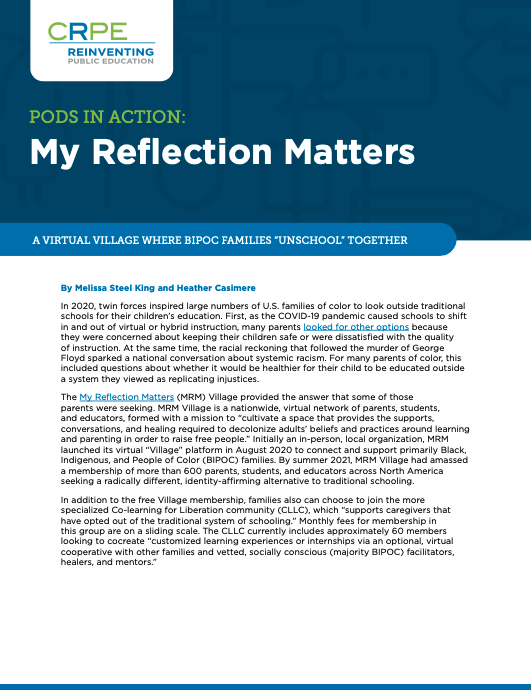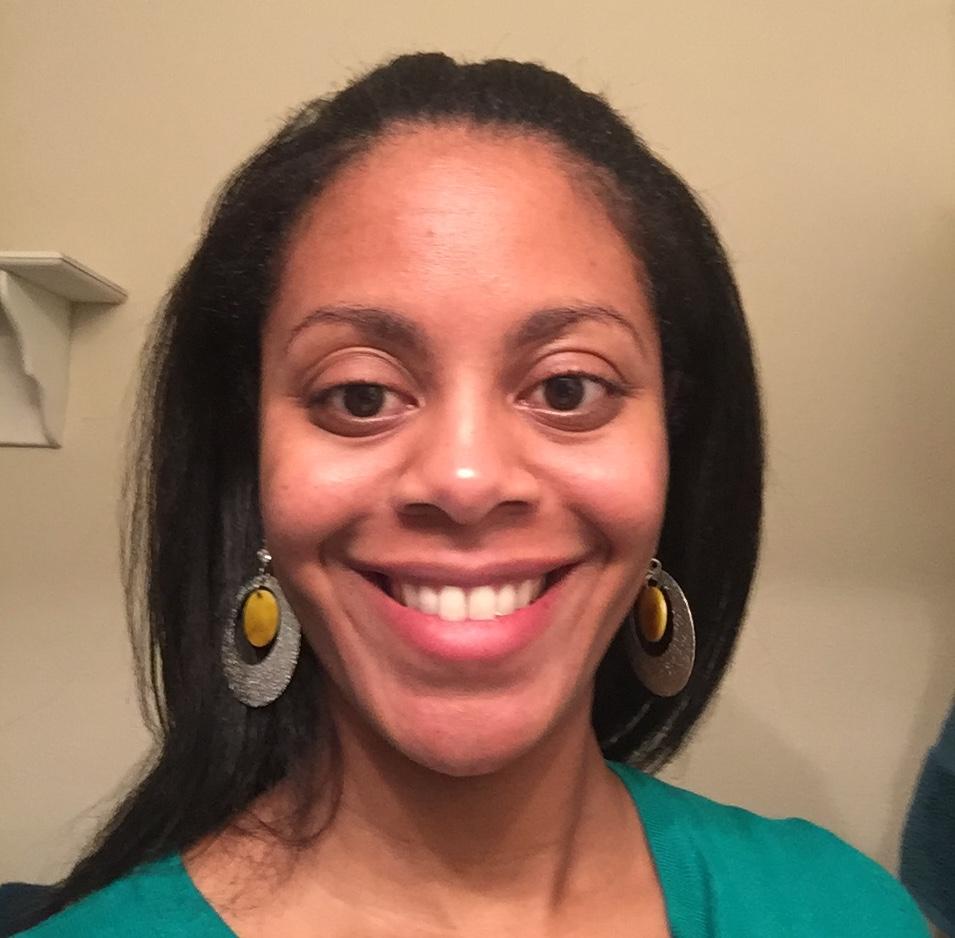Case Study: A virtual village where BIPOC families “unschool” together
The My Reflection Matters (MRM) Village is a nationwide, virtual network of parents, students, and educators, formed with a mission to “cultivate a space that provides the supports, conversations, and healing required to decolonize adults’ beliefs and practices around learning and parenting in order to raise free people.” Initially an in-person, local organization, MRM launched its virtual “Village” platform in August 2020 to connect and support primarily Black, Indigenous, and People of Color (BIPOC) families. By summer 2021, MRM Village had amassed a membership of more than 600 parents, students, and educators across North America seeking a radically different, identity-affirming alternative to traditional schooling.
Key Lessons
- Rather than replicating the traditional structures of school (such as grades or curriculum), CLLC provides a collaborative space where parents and students of color can take ownership over their own learning.
- For families in this self-organized learning community, a belief in student-directed learning is intimately tied to a desire for racial liberation and freedom from systems “rooted in white supremacist beliefs and practices.” The belief that BIPOC students deserve learning environments where they are valued and their families’ expertise is honored is a prime motivator.
- Both parents and students find the MRM community and supports to be uniquely life affirming. For parents, MRM offers access to like-minded adults and liberation-minded activities and advice. For students, MRM offers safety and joyful exploration within a primarily BIPOC environment.
- CLLC’s virtual format is both a strength and a challenge. The group’s online platform allows BIPOC parents of self-directed learners across North America to access a like-minded community and critical supports that they struggle to find elsewhere. But a virtual format also can be at odds with the hands-on philosophy of learning that many community members espouse.





